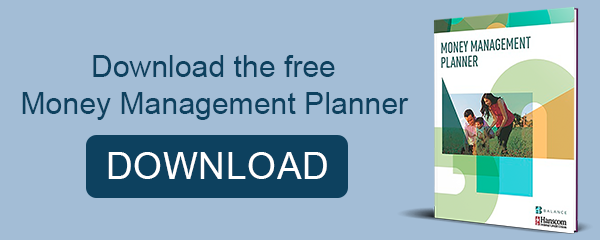Does saving money seem impossible? You’re not alone. According to a recent survey by Careerbuilder.com, 78% of Americans are living from paycheck-to-paycheck, mostly because of debt.
Living paycheck-to-paycheck means you are using all of your monthly income to cover your expenses, with nothing left over for saving or investing.
While it’s hard to imagine saving some extra cash when you live paycheck-to-paycheck, you can turn things around. If you take a big-picture view of your spending habits, you’ll be surprised at the savings opportunities you might find.
Here are three reasons why you've been unable to build a stronger financial future, and how you can finally take control and stop living paycheck-to-paycheck :
1. You don’t track your spending
In fact, you may not have any idea what you spend your money on, which is a good enough reason to start paying attention to what you buy. If you’re feeling the pinch of limited income, tracking your spending habits is crucial. Start by reviewing expenses from the past three months, and look for areas of excess. Look at your bank statements and your credit card statements for detail. How often are you buying coffee versus making it at home? Do you impulse shop while you're at the store? Add up subscriptions that are automatically billed to your credit cards each month...sometimes the total dollar amounts can be much higher than you expect.
Re-assess necessities, too. Obviously you need groceries, but look for ways to trim your food bill with strategies such as choosing store brands over name brands, cutting back on convenience items, and keeping restaurant meals in check. And don't forget utilities. Note how much you're spending each month on things like electricity, cable, oil, propane, and water. If a dollar amount looks high, make it a project to learn how you can reduce what you spend. For example, you can reduce your electric bill by replacing incandescent bulbs around the house with more energy-efficient bulbs.
2. You have the credit card curse
If you rely on credit cards to fund day-to-day purchases, stop; save them for emergencies only. The interest and credit fees can drive up your monthly expenses, keeping you in debt longer. Instead, go old-school and try to exclusively use cash. That way, if an impulse purchase costs more than what’s in your wallet, you won’t be tempted to buy it. Pro tip: keep a notebook or use your phone to record the cash you spend, especially if you're still wondering where your money goes each month.
3. You're busy keeping up with the Joneses
Attempting to keep up with the spending habits of others is a sure way to keep you living from paycheck-to-paycheck. Whether it's Instagram convincing you to spend lavishly so you can have a swoon-worthy home, or your neighbors sending your kids to über-expensive college prep classes , this kind of thinking can bring on not just money troubles, but anxiety and depression. Really think about your motivations for spending money. If you notice a pattern where you pick out cars, clothes, even places to live based on what others will think of you, you'd be better served by thinking about how better financial choices will help you stop living paycheck-to-paycheck.
To get started tracking your expenses and building a strong financial plan for the future, download our free Money Management Planner. This booklet includes worksheets and tips to help you track your spending and start your savings.
Others are reading:














Comment